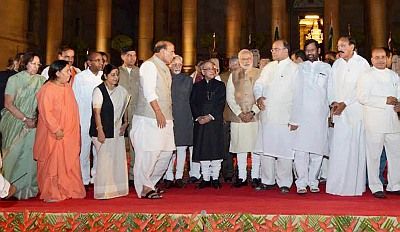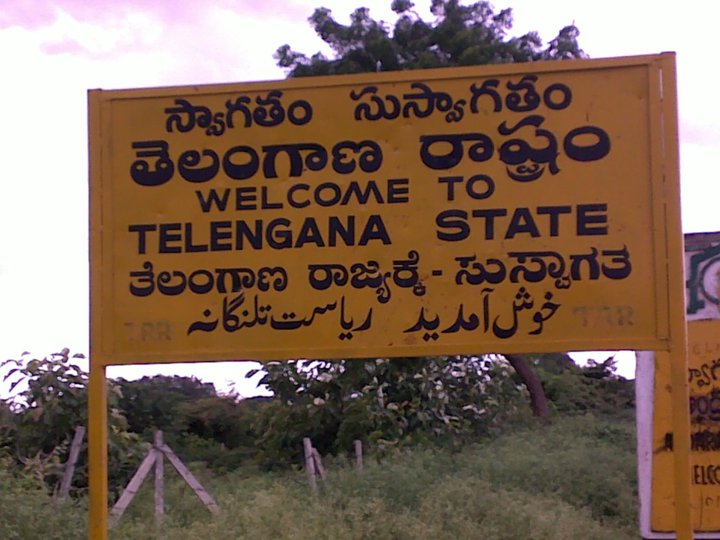 The success of the government will depend substantially on the quality of its team of key ministers, officials and advisors
The success of the government will depend substantially on the quality of its team of key ministers, officials and advisors
The past few weeks have witnessed an extraordinary demonstration of energy, oratory, skillful projection of personal authority, high diplomacy and popular showmanship by Prime Minister Narendra Modi. At the end of August, he launched the Pradhan Mantri Jan Dhan Yojana for financial inclusion to extend bank accounts to every Indian household.
Early last month, he was in Japan engaging with his counterpart, Shinzo Abe, promising a special fast-track for all Japanese investors, playing jugalbandi on drums and generally deepening the Indo-Japanese partnership.
Back in India, the prime minister delivered an exhortatory Teachers' Day speech to millions of teachers and students. He then hosted Australia's Prime Minister Tony Abbot and finalised an agreement to import uranium for India's nuclear programme.
Within days he was off to flood-ravaged Jammu and Kashmir to review the devastation and promise full support for reconstruction and rehabilitation. By mid-month, Modi was welcoming President Xi Jinping of China in Ahmedabad and Delhi, holding summit talks against the tense background of an untimely military stand-off on the border and emphasising the importance of delineating the Line of Actual Control and solving the long-standing boundary issue.
September 24 saw the prime minister in Bangalore at the Indian Space Research Organisation’s Tracking and Command Centre watching and celebrating the successful placement of India's Mars Orbiter in stable orbit around the red planet.
The next day he was back in Delhi launching the "Make in India" programme in front of a galaxy of applauding industrialists.
Then on to the United States, where he gave a strong speech at the United Nations General Assembly, wished the power of "The Force" to Hugh Jackman at an event in New York's Central Park, thrilled the packed non-resident Indian audience at Madison Square Garden, and had a small private dinner with President Barack Obama in Washington, followed by official talks the next day, which breathed new life into the flagging United States-India relationship.
Back in India, he launched the "Swachh Bharat" programme on Gandhi Jayanti, celebrated Dusshera and then, over the last weekend, kicked off the Bharatiya Janata Party's election campaign in the Maharashtra and Haryana assembly elections with a series of rousing speeches in both the states.
Like the legendary Superman, Narendra Modi seemed to be everywhere at the same time.
This whirlwind of media-intensive activity, oratory and multiple ‘summitry’ had several positive consequences. It stamped the full authority of the prime minister on the government after a long decade of weak and divided leadership under the United Progressive Alliance.
It left all our major foreign interlocutors in no doubt as to who was in charge of the country. It amplified the sense of forward movement to most arms of the government. And, like his election campaign of earlier months, it fanned the hopes and aspirations of citizens and voters.
All this was helped by the fact that Modi's high-profile public speeches and press statements generally struck the right notes on all the varied range of subjects and audiences he took on.
The hyperactivity of the last few weeks also raises some important questions. Is there governmental capacity to deliver on all the promises that the prime minister has made to foreign and domestic audiences?
For example, the PMJDY could become a very effective programme for financial inclusion if it also becomes a game-changing vehicle for transforming India's massive, corruption-ridden and highly inefficient subsidies for food, fuel and fertilisers into much more efficient and targeted direct cash benefit transfers.
Will this happen or might the PMJDY simply degenerate into one more expensive and inefficient populist giveaway of scarce public resources? How effectively can the central government take the Swachh Bharat programme forward, when its core elements of water, sanitation and waste disposal fall under the purview of state governments?
Can a fast-track favouring Japanese investments be made to work? How rapidly will the better business climate promised by the prime minister to American corporate leaders actually fructify? Can the "Make in India" boost to manufacturing take off without significant amendments to current laws on labour relations and land acquisition, and major improvements in infrastructure sectors?
Beside the new promises of the past few weeks, what about the ongoing major economic and social challenges facing the nation, from old ones like stagnant employment, weak infrastructure, low economic growth and high inflation to new ones like the Supreme Court's retrospective cancellation of nearly all coal-block allotments for captive mining?
Behind these queries hangs another over-arching one: is this government too reliant on one man, the prime minister, or is there an effective team of ministers, officials and advisors in the making? A prime minster with energy, vision and commitment can certainly make a huge difference, but for sustained, successful governance of a nation of 1.25 billion people, he surely needs a competent and effective team?
A cursory review of our history over the past 40 years suggests that our most effective governments in taking the nation forward may have been the P V Narasimha Rao government of 1991-96 and the Atal Bihari Vajpayee government of 1998-2004.
While these two governments obviously differed in many respects, they had three common ingredients that probably contributed significantly to their success. Both governments were led by prime ministers with clear political authority; both had strong, competent ministers in the Cabinet; and both had well-led and mandated set-ups in the Prime Minister's Office.
Compared to these two examples, the political authority of Modi is clearly unquestionable and may indeed be stronger than that of either Rao or Mr Vajpayee.
However, Mr Modi's ministerial team is composed mainly of newcomers to the Union government. As has been widely and frequently noted, competent and experienced ministers are few and look even fewer when the minister for finance, defence and company affairs (Arun Jaitley) has to spend an entire month in hospital.
Even with his full-time return (for which we should all wish), the ministerial team is clearly weaker than Vajpayee's or Rao's. As a well-wisher of the government (indeed of any Union government), I hope to see early appointment of two tried and tested stalwarts, Arun Shourie and Yashwant Sinha.
They would add valuable competence, wisdom and heft to Team Modi. At the PMO, Nripendra Misra is a fine, experienced and dedicated principal secretary. However, by all accounts, he does not start with the enormous advantages of either Amar Nath Varma or Brajesh Mishra in having his prime minister's confidence from the word "go".
One can only hope that this will be acquired and augmented over time.
Ultimately, the responsibility for creating and welding a strong and responsive Team Modi rests with the prime minister. The programmatic and political success of his government will depend substantially on the quality of his team of key ministers, officials and advisors.












 © 2025
© 2025